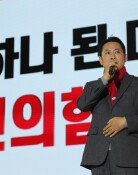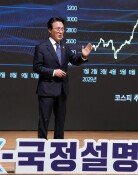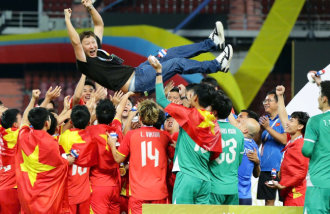[Editorial] N. Korea: Self-Destruction?
[Editorial] N. Korea: Self-Destruction?
Posted July. 17, 2006 03:49,
On July 15, the UN Security Council voted unanimously to adopt a resolution condemning North Korea for its recent missile tests and banning all U.N. member states from purchasing missiles, or missile technologies from Pyongyang. It was for the first time since the Korean War that the U.N. Security Council passed a resolution the North imposing virtual sanctions against it. Now, the ball is in North Koreas court. North Korea should return to the six-party talks on its nuclear program immediately, not make matters worse by mentioning additional missile launches.
The North`s Foreign Ministry said in a statement yesterday, Our Republic will not be bound to the UNSCs resolution and will bolster its war deterrent for self-defense in every way by all means and methods. However, it is not wise for the North to take that route which may possibly lead to self-destruction. Pyongyang should think about why the Security Council adopted a resolution this time, differently from 1998 when the Council issued a non-binding presidential statement after the North fired a Taepodong 1 missile. It means that the Council considers the situation as a serious one. Telling proof is that China and Russia, North Koreas allies, took the lead in adopting the resolution on North Korea.
Pyongyang should give it a second thought. Continuing to dabble with nuclear and missile programs and turning its back on the international community does not guarantee the security of its regime, nor earn it food and energy. So far, China and South Korea have spoken up for the North. However, now that the international community raised a united voice to declare their opposition against the Norths militaristic adventurism, the North cannot expect support from China and South Korea any more. The prospects for inter-Korean economic cooperation and exchanges are uncertain also.
This is not a time for the South Korean government to remain lost in emotional nationalism, which only leads to confusion for the international coordination by engendering unnecessary misunderstanding. Last week, President Roh Moo-hyun said when he met U.S. religious leaders, If we resolve the worries of the North, the North wont do anything wrong, so, well continue to strive to this end, which can be read as a remark that glosses over the true nature of the problem.
Earlier, at a luncheon with the Open Uri Partys leadership at Cheong Wa Dae, President Roh Moo-hyun euphemistically revealed his uneasy feelings toward the Bush administration of the U.S. by referring to the North Korean policies of the U.S. as Execute first and discuss the rights and wrongs later. The president himself is quite an explanation for an absurd remark from a ruling party lawmaker who is the chairman of the National Assembly Unification, Foreign Affairs, and Trade Committee. He said, It is rash to say that North Korea acquires Scud missiles to attack the South.
The two Koreas should respect the unified will of the international community expressed in the U.N. resolution. If they turn a blind eye to it, or interpret it arbitrarily, they can bring isolation upon themselves. If the six-party talks do not resume due to the rejection of North Korea, the government should hold five-party talks in order to explore ways to resolve the North Korean issue jointly.
Condoleezza Rice, the U.S. secretary of state, will visit five Asian countries including South Korea, China and Japan and participate in the ASEAN Regional Forum at the end of July. The trip is intended to gather the wisdom of neighboring countries. Foreign ministers of both South and North Koreas will also attend the meeting. The South Korean government should not miss out on this opportunity.




![넘치는 전재수 과거 사진들…유죄의 증거일까, 무죄의 증거일까[청계천 옆 사진관]](https://dimg.donga.com/c/138/175/90/1/wps/NEWS/IMAGE/2025/12/20/132997378.1.jpg)


